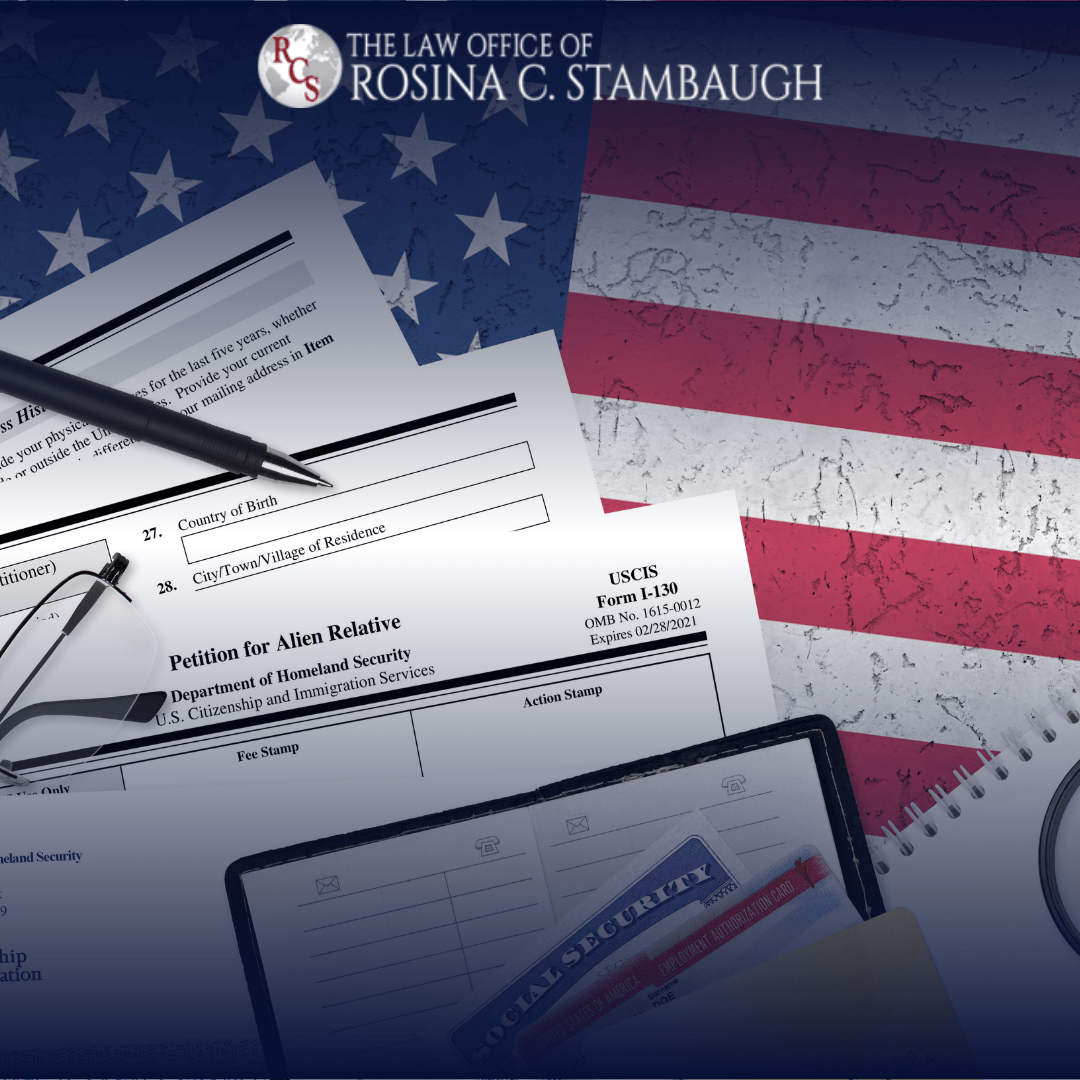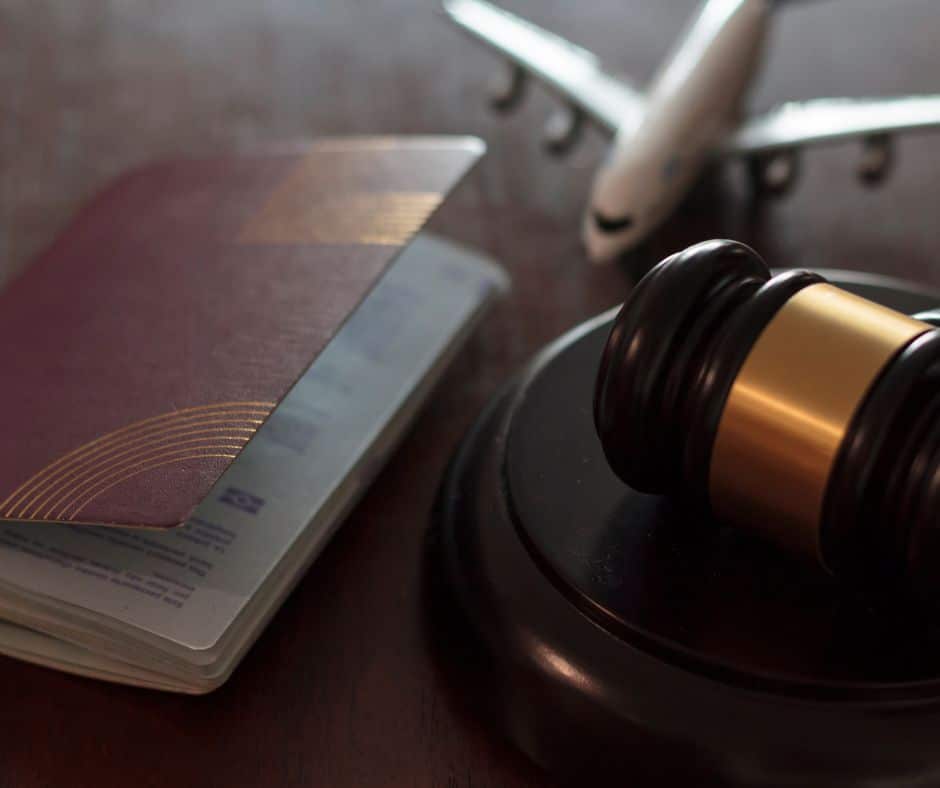Noncitizens can be granted life-changing benefits from the United States Citizenship and Immigration Services (USCIS) or an immigration judge (IJ). Or, they might be denied those benefits. Like everyone, immigration court judges and USCIS officers make mistakes. If that occurs, you can typically appeal to a higher office within 30 days. Understanding how to appeal a USCIS decision is critical, as appeals must follow strict deadlines.
The immigration appeal process is not simple. Even the savviest noncitizens benefit from hiring an immigration attorney for an appeal. The Law Office of Rosina C. Stambaugh can help you appeal the denial of immigration benefits. We have experience with simple and complex cases, including those involving criminal histories. Because appeals operate on tight deadlines, the sooner you reach out to the firm, the better.
How to Appeal an Immigration Decision to USCIS or the BIA
Depending on the circumstances, you may reverse an unfavorable decision without a formal appeal if you convince the decisionmaker to change their mind. Otherwise, understanding how to appeal an immigration decision begins with understanding affirmative and defensive immigration benefits, which have varying appeal processes.
Affirmative vs. Defensive Immigration Benefits
Appealing Affirmative Immigration Benefits with USCIS
When you request affirmative benefits, you generally ask USCIS to grant you some immigration status. Because you initiated the process, the benefits are affirmative.
You typically appeal affirmative requests to the Administrative Appeals Office (AAO). There are some exceptions, particularly denials of Form I-130, Petition for Alien Relative, which is used in most family-based green card cases.
Defensive Immigration Appeals: Understanding the BIA Process
You request defensive benefits in immigration court after the government places you in removal (deportation) proceedings. Because you are defending yourself from the government’s attempt to deport you, these benefits are defensive.
If an IJ denies you benefits or orders you deported, you can appeal to the Board of Immigration Appeals (BIA). You also appeal Form I-130 denials to the BIA.
Motions to Reopen and Reconsider After Denied Immigration Appeals
If your request for benefits is denied, you usually have the option to file a motion to reopen or reconsider to ask the decision-maker to reevaluate the case. You file a motion to reopen if you have new evidence. You file a motion to reconsider if the decision was wrong under the law or policy at the time it was made.
AAO Appeals – How to File an I-290B Appeal with the AAO
You appeal to the AAO by filing a Form I-290B Notice of Appeal. You must file within 30 days of receiving notice of the denial of your benefit request. If you miss the deadline, you may be unable to appeal. If you are wondering how long does an I-290B appeal take, AAO cases are usually resolved within 180 days, barring complications.
When you appeal, the USCIS office will reexamine the case and can change its decision. If USCIS does not change the decision, the AAO considers whether the USCIS officer was correct.
You are responsible for convincing the AAO that you should have received the benefits. Typically, this means you submit a brief. A brief is a legal document laying out the facts of the case and explaining why the law supports granting you the benefit. Based on what you submit, the AAO decides whether to grant your request or not. If the AAO denies your request, you can move to reopen or have the AAO reconsider your case. In rare circumstances, you may be able to appeal to a U.S. federal court. However, AAO denials are usually final.
The Immigration Appeal Process with the BIA
To appeal to the BIA, you file a Notice of Appeal (EOIR-26) within 30 days of the IJ’s decision. Like AAO appeals, you generally file a written brief that explains the facts and the law involved in the case.
If the BIA denies your request, you can appeal to a federal circuit court. Which court you appeal to depends on where you live. For example, if you live in Pennsylvania, you appeal to the Third Circuit. Rarely, if the circuit court rules against you, you can appeal to the U.S. Supreme Court.
Navigating Mixed Immigration Appeals: Affirmative and Defensive Cases
Sometimes, your deportation defense is based on an affirmative request for benefits. A common way this can occur is if ICE initiates removal proceedings even though you qualify for a green card. You can apply for a green card from USCIS while your removal case is pending, effectively resulting in two pending immigration cases.
If the court denies either case, the other gets complicated. An experienced immigration attorney can coordinate and guide you through mixed cases.
How Long Does an Immigration Appeal Take with USCIS or the BIA?
The government tries to maintain a consistent immigration appeal process time. For both the AAO and the BIA, you must file your appeal within 30 days. The relevant appeals board should set specific deadlines for each step in the process after you file the notice of appeal.
The AAO tries to rule on appeals within 180 days. While the BIA sets the same goal, cases before the BIA frequently take longer than those before the AAO.
In general, the more clear-cut your case, the quicker it will likely be. The more complicated your case is, the more likely the appeal process could take more than six months.
Get Help with Your Immigration Appeal Process – The Law Office of Rosina C. Stambaugh Can Help
Appealing immigration decisions requires familiarity with the many complicated laws, policies, and procedures of the immigration appeal process. The Law Office of Rosina C. Stambaugh has experience with affirmative and defensive immigration cases. So, if you have received an unfavorable immigration decision, we can help. Contact us as soon as possible to learn more.





